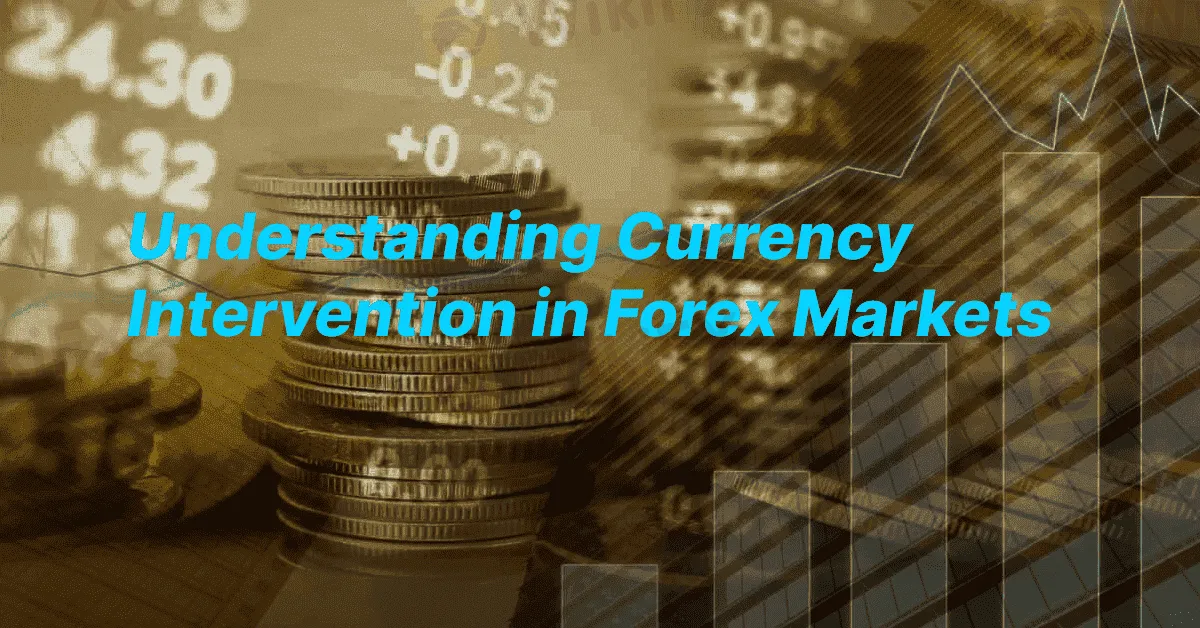简体中文
繁體中文
English
Pусский
日本語
ภาษาไทย
Tiếng Việt
Bahasa Indonesia
Español
हिन्दी
Filippiiniläinen
Français
Deutsch
Português
Türkçe
한국어
العربية
Understanding Currency Intervention in Forex Markets
Abstract:Currency intervention involves actions by a nation's central bank or monetary authority to influence the value of its currency in the foreign exchange (forex) market. These interventions aim to achieve specific economic objectives, such as controlling inflation, stabilizing the currency, or influencing trade balances.

Currency intervention involves actions by a nation's central bank or monetary authority to influence the value of its currency in the foreign exchange (forex) market. These interventions aim to achieve specific economic objectives, such as controlling inflation, stabilizing the currency, or influencing trade balances.
Types of Currency Intervention
- Direct Intervention: This involves the central bank buying or selling its own currency against foreign currencies. For example, to weaken its currency, a central bank might sell its own currency and purchase foreign currencies. Conversely, to strengthen its currency, it might buy its own currency using foreign reserves.
- Indirect Intervention: Instead of directly engaging in currency markets, a central bank may adjust interest rates or implement monetary policies that influence currency values. For instance, raising interest rates can attract foreign capital, leading to an appreciation of the domestic currency.
Purposes of Currency Intervention
- Stabilizing the Currency: Excessive volatility can harm economic stability. Interventions can smooth out fluctuations, providing a more predictable environment for businesses and investors.
- Controlling Inflation: A stronger currency can reduce the cost of imports, helping to keep inflation in check.
- Influencing Trade Balances: By adjusting the currency's value, a country can make its exports more competitive or imports more expensive, thereby affecting the trade balance.
Effectiveness and Considerations
The success of currency interventions depends on various factors, including the scale of the intervention, market perceptions, and the underlying economic conditions. While interventions can have short-term effects, their long-term success often requires consistent and credible policies. Additionally, interventions can lead to retaliatory actions from other countries, potentially escalating into currency wars.
Recent Examples
- Swiss Franc: During the 2007-2008 financial crisis, the Swiss National Bank (SNB) intervened to prevent the Swiss franc from appreciating too much, which could harm the country's export-driven economy. The SNB's actions included purchasing foreign currencies to weaken the franc.
- Russian Ruble: In 2014, the Central Bank of Russia allowed the ruble to float freely, significantly depreciating. The central bank then intervened by raising interest rates and selling foreign reserves to stabilize the currency.
Conclusion
Currency intervention is a critical tool for central banks to manage their economies. While it can effectively achieve short-term objectives, the long-term success of such interventions depends on sound economic fundamentals and consistent policy implementation. Understanding the mechanisms and implications of currency intervention is essential for policymakers, investors, and businesses engaged in the global economy.

Disclaimer:
The views in this article only represent the author's personal views, and do not constitute investment advice on this platform. This platform does not guarantee the accuracy, completeness and timeliness of the information in the article, and will not be liable for any loss caused by the use of or reliance on the information in the article.
Read more

OctaFX Flagged by Malaysian Authorities
OctaFX has been officially listed on warning lists by both Bank Negara Malaysia (BNM) and the Securities Commission Malaysia (SC). These alerts raise serious concerns about the broker’s status and whether it is legally allowed to operate in Malaysia.

TradingPRO: A Closer Look at Its Licences
In an industry where safety and transparency are essential, the regulatory status of online brokers has never been more important. For traders seeking to protect their capital, ensuring that a platform operates under recognised and stringent oversight can make all the difference. Keep reading to learn more about TradingPRO and its licenses.

New SEBI Regulations on Intraday Trading
The Securities and Exchange Board of India (SEBI) has implemented revised regulations on Intraday trading, with effect from November 20, 2024. These regulations are meant to lessen risks and prevent speculative trading practices.

Errante Launches Deposit Bonus Offers with Rewards Up to $2,000
Errante has introduced a new deposit bonus promotion for first-time clients. Under this offer, eligible traders can receive a bonus of up to 30% on their initial deposit, with a maximum bonus amount capped at USD 2,000.
WikiFX Broker
Latest News
SkyLine Guide 2025 Malaysia: 100 Esteemed Judges Successfully Assembled
Vantage Markets Review 2025: Trusted Forex and CFD Trading Since 2009
Why STARTRADER Is Popular Among Traders?
A Guide to Intraday Forex Trading You Can't Miss Out
CONSOB Blocks Access to 13 Unauthorized Investment Websites
TradingPRO: A Closer Look at Its Licences
The world could be facing another ‘China shock,’ but it comes with a silver-lining
New SEBI Regulations on Intraday Trading
Everything You need to know about Barath Trade
IronFX Broker Review 2025: A Comprehensive Analysis of Trustworthiness and Performance
Currency Calculator


